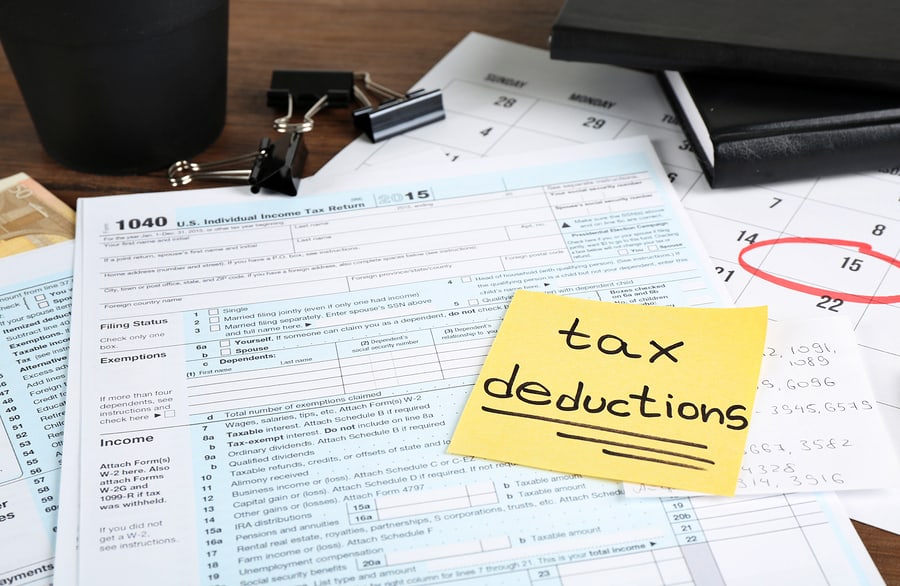If you’ve ever rented a property, you’ve likely even paid a security deposit. Similarly, landlords have collected security deposits at the beginning of the lease agreement. But what is a security deposit? Why do landlords require a security deposit for rent? What does it cover and can it be returned? We’re here to help you better understand this topic, so keep reading to learn more about security deposits.

Definition: What is a rental security deposit?
Under Texas law, Section 92.102 of the Texas Property Code defines “security deposit”…
A security deposit is any advance of money, other than a rental application deposit or an advance payment of rent, that is intended primarily to secure performance under a lease of a dwelling that has been entered into by a landlord and a tenant.
A rental security deposit is an advance payment that tenants pay to the landlord or property manager before they start living in your rental unit. The rental security deposit serves as insurance for the managers or property owners to protect their property from damage. The amount of money varies by state or property, and it’s refundable. At the end of the lease, the landlord/property manager returns the money to the tenant, in part or in full. Once the rental property has been inspected and damage costs have been deducted (if any), the landlord or property manager will then return what’s left to you.
Security Deposit Limits: How much should a security deposit be?
The cost of a security deposit depends on several factors and varies by state. State landlord-tenant laws limit how much of a rental security deposit a landlord can collect from a tenant. In Texas, there’s no statutory limit on security deposits at the state level. Tenants are advised to check the city and county laws if there’s a local cap on security deposits for residential rentals, and landlords should consult their management company before deciding.
As a rule of thumb, a security deposit is almost equal to a month’s rent. In addition to this, the landlord may ask for an additional pet deposit, except for people with disabilities who use service animals.
Deduction from Security Deposit: What Can a Landlord Deduct From a Security Deposit?
Under Texas law, Section 92.104 of the Texas Property Code describes what a landlord may deduct from a security deposit…
Before returning a security deposit, the landlord may deduct from the deposit damages and charges for which the tenant is legally liable under the lease or as a result of breaching the lease.
Section 92.104 also states that a “landlord may not retain any portion of a security deposit to cover normal wear and tear.” Section 92.001 defines “normal wear and tear”
“Normal wear and tear” means deterioration that results from the intended use of a dwelling, including, for the purposes of Subchapters B and D, breakage or malfunction due to age or deteriorated condition, but the term does not include deterioration that results from negligence, carelessness, accident, or abuse of the premises, equipment, or chattels by the tenant, by a member of the tenant’s household, or by a guest or invitee of the tenant.
The landlord is required by the law to provide an itemized and written list of the deductions to the tenant if a portion of the security deposit is kept by the landlord. Here are allowable deductions on security deposits in Texas…
- Unpaid rent.
- Unpaid utility charges.
- Payment for any changes made to the premises (including removal of hardware on walls, etc.).
- The cost of damage to the rental unit (not from normal wear and tear).
- Cleaning fees to the extent that the premises are kept at the same level of cleanliness that existed at the start of the tenancy.
- Cost of charges to the security deposit as provided in the lease agreement.
- Cost of damages incurred by the landlord from the tenant’s breach of the contract.
Returning Security Deposits: When do landlords give back the security deposit?
Under Texas law, Section 92.103 states…
The landlord shall refund a security deposit to the tenant on or before the 30th day after the date the tenant surrenders the premises.
Section 92.107 states…
The landlord is not obligated to return a tenant’s security deposit or give the tenant a written description of damages and charges until the tenant gives the landlord a written statement of the tenant’s forwarding address for the purpose of refunding the security deposit.
If everything goes well, tenants will receive the entire security deposit at the end of their tenancy. Landlords who choose not to return a security deposit even when the tenant has left the unit in good condition will face legal troubles.
Please check the Texas law on security deposits for complete information. Seek professional advice from an attorney if you have issues or specific questions regarding security deposits.
Work with Apogee Properties
Apogee Properties is Houston’s Premier Property Management Company. We work and live in Houston, and our property managers are local. We’ve been in business for more than a decade, providing comprehensive property management services in the Houston region, ranging from a studio condo to a multi-family million-dollar estate. Contact us to learn more about our property management services, and what we can do for you and your rental property.
Get your property managed today!










